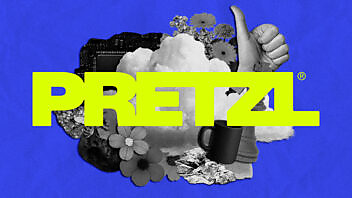I love an election. It’s the way people – not the robots programmed for power – make decisions as polling day looms.
One week a person sits on the fence in anguish, but the next they’ve become tub-thumping, flag-waving partisans.
Election are unique. The Olympics and the World Cup generate more excitement but we’re all wearing the same colours, cheering on the same team. It’s what we believe, not where we were born, that counts in an election, and that forces us, often reluctantly, into a personal decision of monster-truck proportions.
And because making a big decision is stressful, we want it to stay made.
It’s down to what academics (the masters of simplicity!) call Cognitive Dissonance. In layman’s terms it means we’d rather slash our own feet and walk barefoot through a pool of piranhas than try to balance conflicting opinions.
We’re happier at 100 per cent than 50/50. And we’ll do whatever it takes to stop worrying and form an absolute opinion. It’s true when we decide to vote, and true when we decide to buy.
As a B2B marketer you can understand your own funnels with a look at the election decision-making process. First, we need to think about how we can win business from prospects who love their recent investments like a family pet.
Never blame your prospects
Politicians blame everyone except the electorate. Voters, like your prospects, believe they make the right decisions and don’t want to be told otherwise. Frighten them if you want, but don’t point the finger.
Know when it’s decision time
There are business equivalents of elections: times when prospects are ready to reconsider their previous decisions. Find out when it’s review time and you’ll find prospects ready to listen.
Be a friend of a friend
We don’t trust a politician’s opinion but, apparently, hang on the Institute of Fiscal Studies’ every stat. Changing the source of your message works because trusted sources break down your prospect’s resistance to new ideas.
Offer your prospects a stake
Why do politicians knock on doors? It’s because the very act of conversation has a major impact on a voter’s views. The Benjamin Franklin Effect shows buyer attitude will improve when they digest or, if you’re really clever, help create your content.
Play a little bit hard to get
The web form debate is polarised on a Cold War scale. Forms kill downloads and awareness, but build databases. But there’s more. A buyer that fills out a form, or puts a cross in your box, values your content higher, because they knew it would be good.
Don’t bribe your audience
An election budget full of goodies often backfires. It smells like a bribe and lacks credibility. B2B buyers might surrender their business card for a chance to win an iPad. But they won’t respect you when you call back in the morning.
Keep talking until the sale is closed
Election campaigns run to wire. Ever celebrated a deal only to lose out to “cold-feet”? Panic often follows a big, supposedly final decision. The “morning after” often sees a final research round that you must aim to manage.
Now we need to think about how we can use decisions made in your favour.
Understand the honeymoon concept
Almost all new governments enjoy initial popularity then get hammered in mid-term elections. Almost all new customers think you’re magicians. But it won’t last forever unless you continue to reinforce initial customer decisions.
Nurture your community
In the toughest times politicians rely on their activists; they’re the people who have invested the most in the process. Give your customers a stake and a forum to interact with your business and their loyalty will surely grow.
Decisions Count
We’re not suggesting electioneering and B2B marketing are identical. But there’s probably no bigger national marketing exercise that we can tap into.
It’s easier to win new business and build long term relationships with your customers if you understand the impact of decisions on they way they think and act.

Enjoyed this article?
Take part in the discussion







Comments
There are no comments yet for this post. Why not be the first?